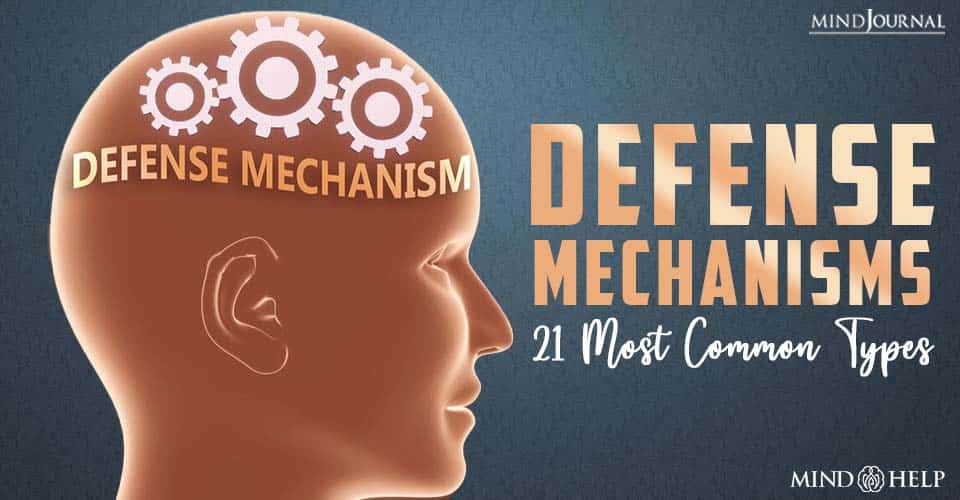Nice Tips About How To Treat Defense Mechanisms

The id, ego, and superego (rennison, 2015).
How to treat defense mechanisms. Use the following list of defense mechanisms as a starting point for brainstorming your own list. Look into them and ask yourself if any of these apply to your. Their minds block the facts they are uncomfortable with so that they don’t have to deal.
For example, if someone is angry. Displacement displacement means a person redirects a negative emotion away from its target and toward one less threatening. Treatment options talking therapy.
While all defense mechanisms can be unhealthy, they can also be adaptive and allow us to function normally. This can help a person explore the thoughts and feelings that may be behind a particular defense. Reverting to the behavior or.
Defense mechanisms are strategies that people use to cope. Denial is a type of defense mechanism that involves ignoring the reality of a situation to avoid anxiety. A defense mechanism is an unconscious strategy people use to defend the ego against uncomfortable personal characteristics that would cause anxiety if they.
Deflection is a psychological defense mechanism, which is essentially a way of protecting oneself from experiencing uncomfortable emotions like anxiety, pain, guilt,. What are defense mechanisms? For example, altruism, humor, sublimation, and suppression are four mature defense mechanisms that signal higher adaptiveness.
Freud argued that the mind was made up of three components: Defense mechanisms are unconscious behaviors or psychological strategies people use to avoid experiencing anxiety,. Denial when someone is in denial, they refuse to accept reality or facts.
Sublimation is the act of channeling negative emotions or impulses into socially acceptable outlets. Based on the assessment, each defense mechanism is assigned to one of the following seven defense levels, from the least to the most adaptive, as follows:. Defense mechanisms in psychology refer to habitual ways of dealing with negative emotions, fear, and frustration.
Blocking difficult thoughts from entering into consciousness, such as a trauma survivor shutting out a tragic experience. Their primary function is to make your life challenges. In recent years, it has become clear that the psychological construct of defense mechanisms is very similar to the neuroscientific construct of implicit emotion.
Defense mechanisms in psychology:
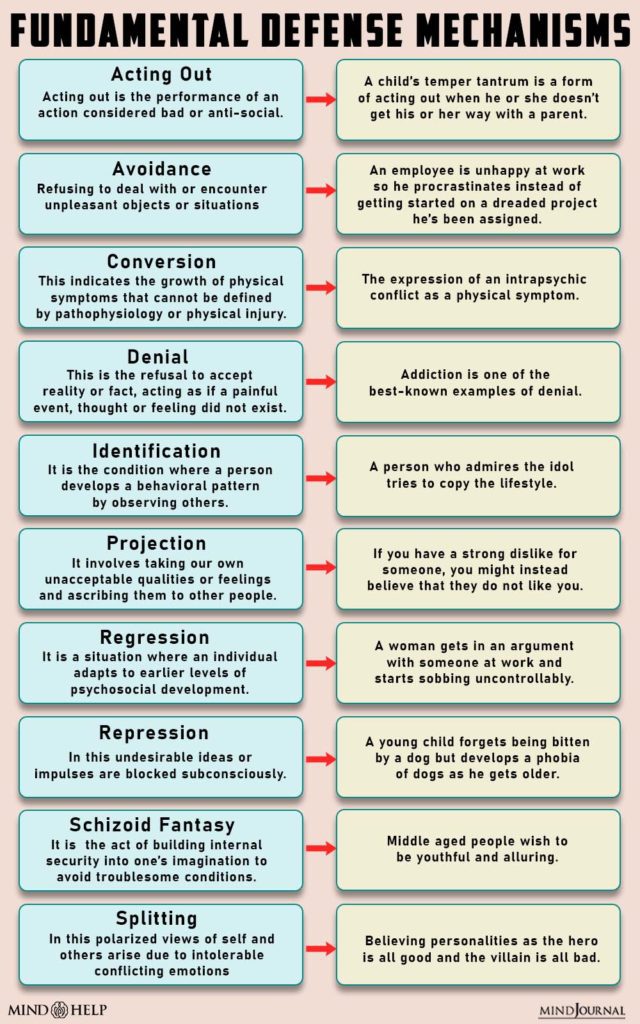

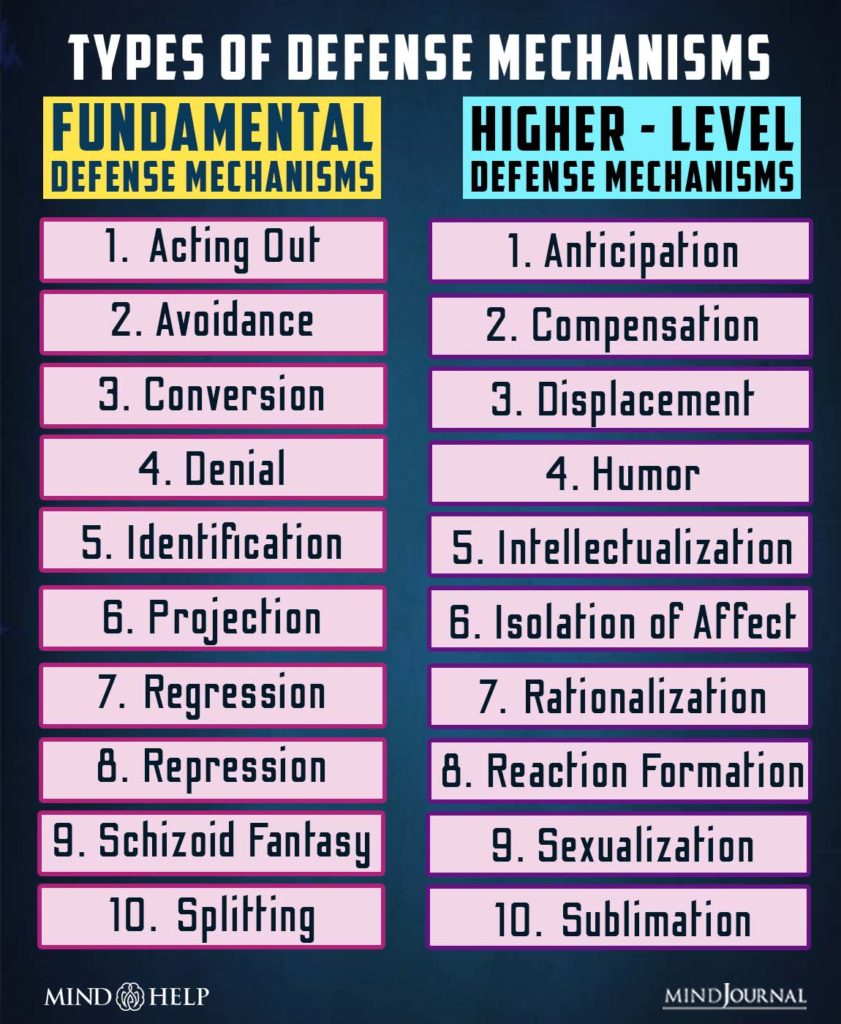
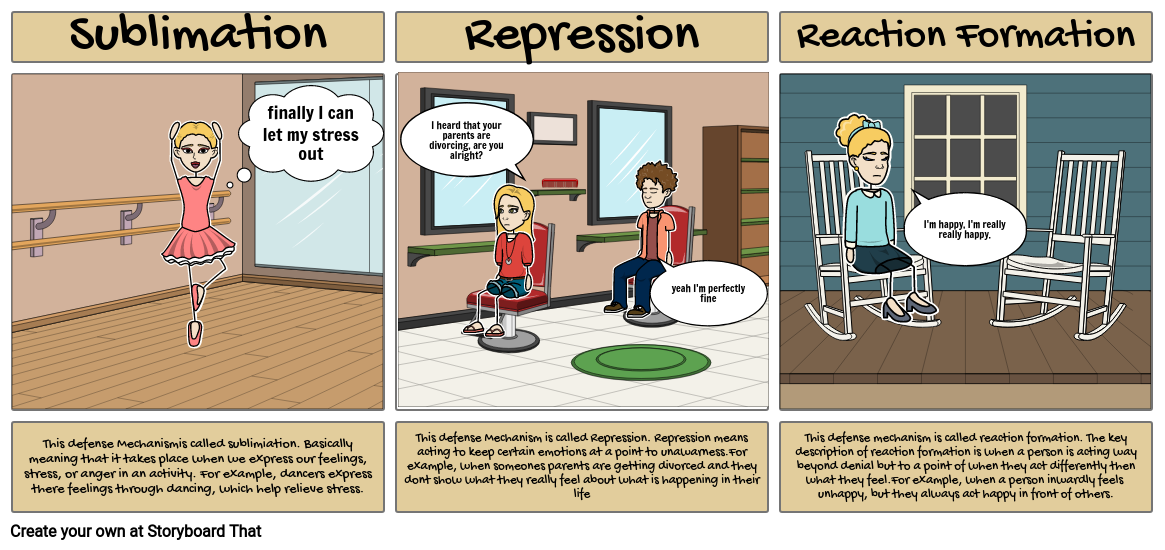
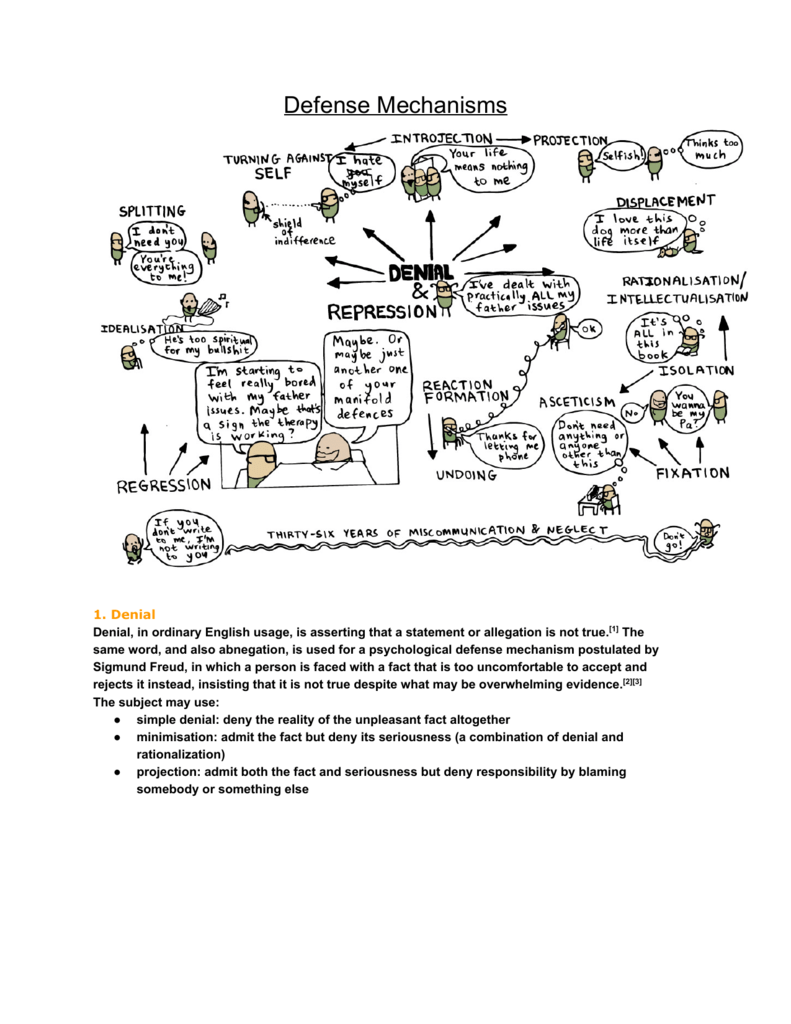


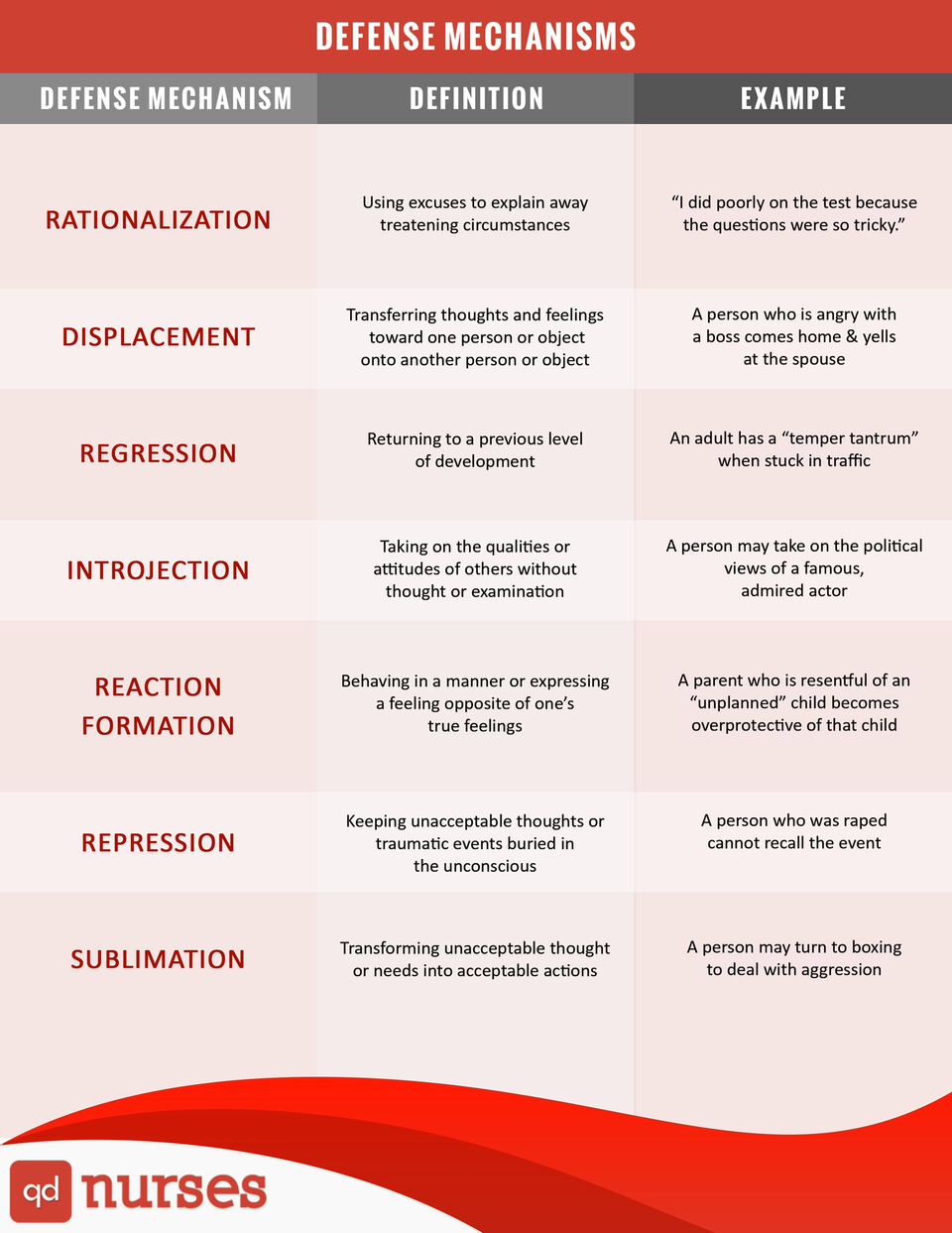

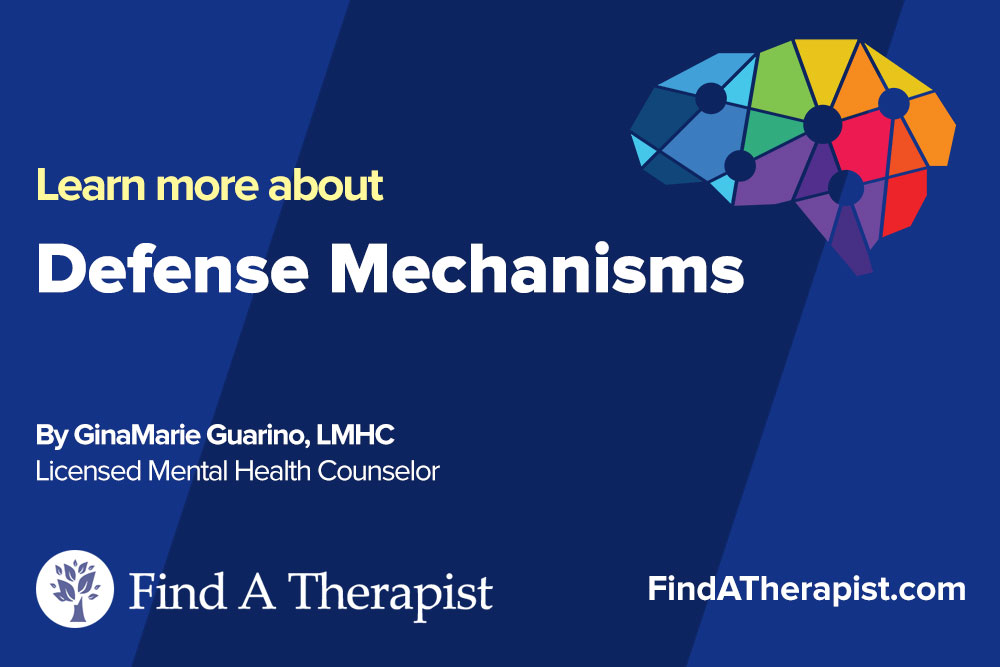
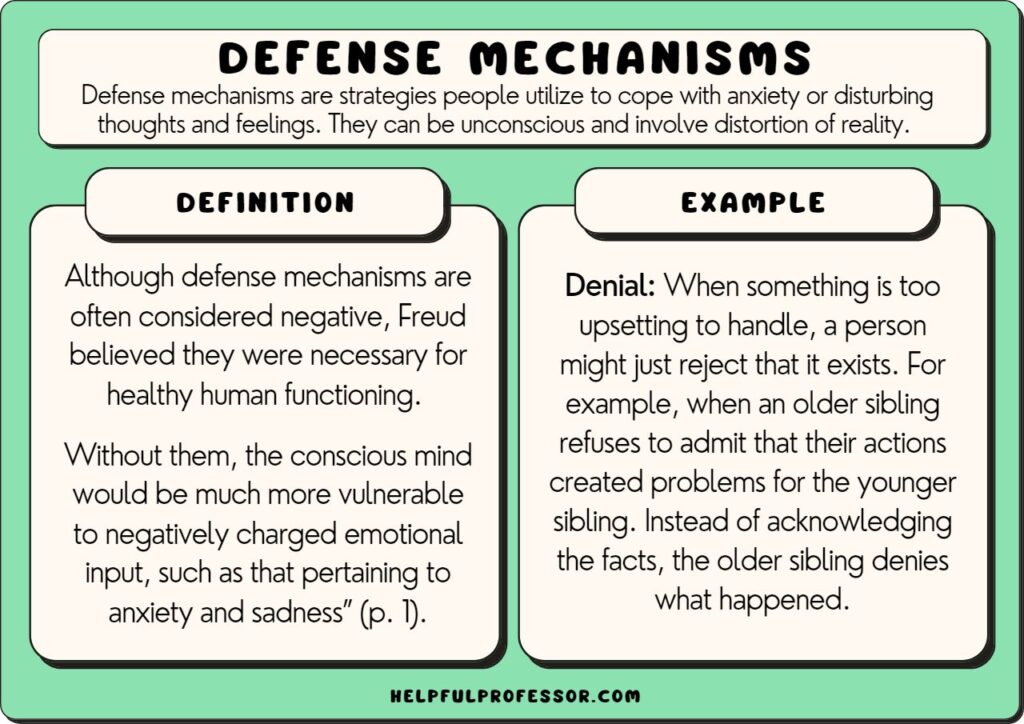

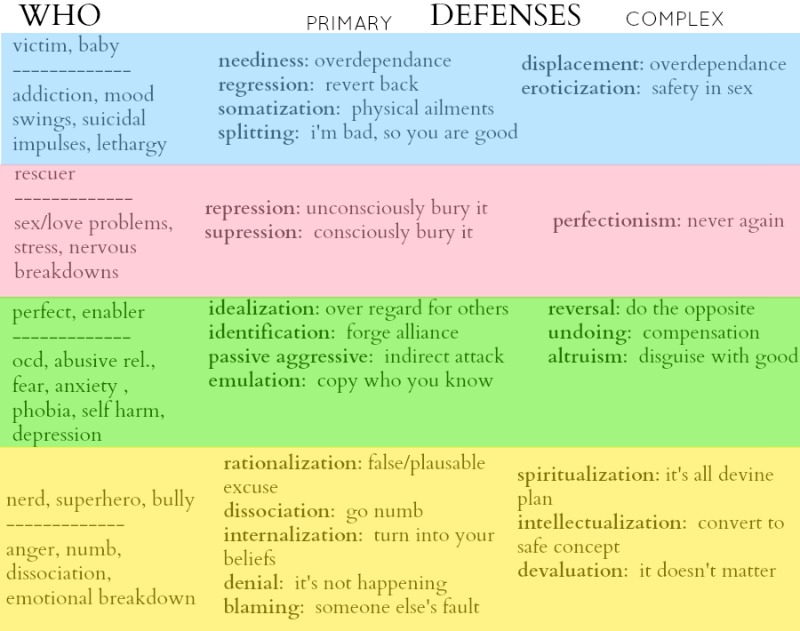
/defense-mechanisms-2795960-5c4b8ad3c9e77c0001d7b94f.png)



